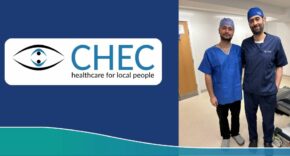Scientific advancements have made DNA testing more accessible, offering valuable insights into ancestry and health. Genetic data reveals inherited traits, potential risks, and wellness strategies tailored to individual needs. Understanding these details can empower better lifestyle choices for long-term well-being. Below, we will explore ancestry’s impact on health, how DNA influences wellness, and ways to turn genetic data into actionable strategies. Keep reading to discover how to make the most of your DNA results.
Uncovering Your Roots: How Ancestry DNA Shapes Your Health
Genetic ancestry testing provides more than just historical lineage; it connects past generations to present health conditions. Certain populations have unique genetic predispositions influencing disease risks, metabolism, and nutrient absorption. Recognizing ancestral heritage helps in making informed dietary and lifestyle choices.
Genomic studies reveal that some ethnic groups carry higher risks for specific conditions. African, Mediterranean, and Southeast Asian ancestries show increased likelihood of sickle cell disease, thalassemia, or lactose intolerance. Understanding these risks allows individuals to take preventative measures through routine checkups and targeted nutrition.
DNA data platforms help users interpret genetic information for health insights. Genomelink offers an advanced breakdown of traits, linking ancestry to wellness factors such as immunity and cognitive function. Users seeking deeper knowledge on family health trends can analyze their results using these platforms.
People interested in accessing raw DNA data often need instructions on how to download Ancestry DNA results. These files can be uploaded to third-party services for additional analysis. Leveraging such resources enhances understanding of inherited traits and potential health challenges.
Genetic Insights for Wellness: Using Your DNA to Optimize Health

DNA testing identifies variations affecting metabolism, fitness, and susceptibility to certain conditions. Some genes regulate how the body processes fats, sugars, and vitamins, impacting weight management and disease prevention. Personalized wellness strategies based on these findings can enhance overall health.
Genetic markers influence cardiovascular risks, with specific mutations increasing susceptibility to heart disease. Those with higher genetic predispositions should focus on cholesterol levels, blood pressure, and exercise routines. Lifestyle modifications tailored to genetic risks improve heart health outcomes.
Some individuals metabolize caffeine and alcohol differently due to inherited enzyme variations. Fast caffeine metabolizers may experience fewer negative effects, while slow metabolizers risk increased anxiety or hypertension. Genetic insights help refine daily habits to match individual physiological responses.
Those with a genetic predisposition for heart disease may benefit from consulting specialists. A quick way to find experts is to search online for “top 10 cardiologist in Los Angeles” to find highly rated professionals. Early intervention based on genetic knowledge enhances long-term cardiovascular health.
Personalized Living: Turning DNA Data into Actionable Health Choices
Applying genetic information to daily life involves making informed dietary adjustments. Some individuals may require more omega-3 fatty acids due to genes linked to inflammation regulation. Others might need higher vitamin D intake based on genetic absorption rates.
Exercise recommendations can be tailored using genetic data on muscle composition and endurance potential. Some people are naturally suited for strength training, while others excel in endurance-based activities. Aligning workout routines with genetic strengths maximizes fitness outcomes.
Mental health and cognitive performance also connect to genetic predispositions. Variants in serotonin and dopamine-related genes influence stress resilience and emotional regulation. Adjusting lifestyle factors such as sleep, mindfulness, and nutrition can optimize mental well-being.
Preventative care strategies improve when guided by genetic insights. Those at risk for diabetes or osteoporosis can proactively modify diet, physical activity, and medical screenings. Using DNA-based strategies ensures a proactive and personalized approach to lifelong health.
Overall, understanding your DNA results empowers you to make personalized lifestyle choices that enhance health and well-being. By leveraging genetic insights, you can optimize nutrition, fitness, and preventative care for a healthier future. Embracing this knowledge allows you to take proactive steps toward long-term wellness and disease prevention.













